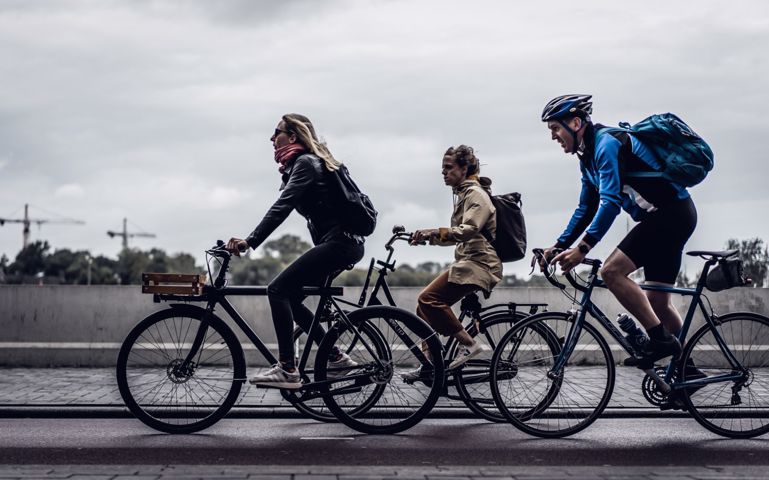The Netherlands is a real cycling country. It is a healthy and climate neutral way of getting around. At least when you are not exposed to air pollution. To get better insight in cycling routes and air quality, the province of Utrecht started a project in 2018: "Snuffelfiets". The objective is to collect data from bicycles on a large scale by participating citizens.
In 2019, 500 cyclists in the province of Utrecht received a mobile sensor with which the air quality and GPS position are measured every 10 seconds. This number has grown to over 800 sensors across The Netherlands. Meanwhile, version 3 of the sensor is available (Sodaq AIR).

As WeCity we facilitate different organisations with onboarding of users, providing support, sharing knowledge and integration in the WeCity Open Urban Platform.
More information about Snuffelfiets can be found in the article "Cycle routes and air quality monitoring with REAL citizen's engagement" and results of a year-long measurement are contained in an article in the International Journal of Environmental Research and Public Health (Assessment of PM2.5 Exposure during Cycle Trips in The Netherlands Using Low-Cost Sensors).


